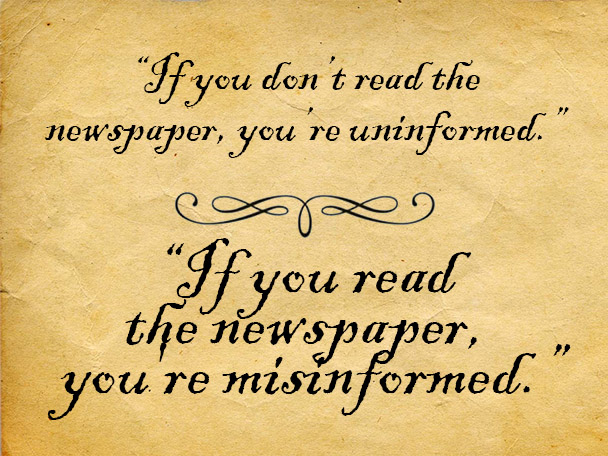
I find it painful that despite all the amazing data available at our fingertips, it’s sometimes still so hard to get at the “truth.”
Just one recent example: recent unemployment figures in the US. I won’t use links to articles or data — the specifics aren’t the point — but my online reading went something like this:
- Articles based on government statistics showing falling unemployment.
- Sneering articles saying “Oh yeah? But there are fewer employed people than before, so you’re obviously lying!”
- Sneering responses to these articles saying “Ever heard of Baby Boomers? They’re retiring!”
- Articles discussing how much of the fall in employment could not be attributed to retirements.
- Articles stating that the remaining fall in employment was “clearly” because of people giving up on ever having a job, because the government had ruined the economy.
- Articles stating that the remaining fall in employment was “clearly” because of people liberated from the dead-end jobs they only did because they had bad health and, until recent health care changes, couldn’t have afforded independent insurance coverage.
At each stage, I felt like the previous article had tried to trick me — unless they were completely incompetent, the authors were reporting things as “truth” when they were only giving one side of the story.
What caused all this? Why didn’t every article include all the relevant information, which is what journalism is supposed to be about? The answer is incentives.
There are balanced articles out there — but those articles are the hardest to find. People are desperate for “facts” that fit their world view and more keen to share articles they agree with. And when journalists and media are paid on clicks rather than quality, polemicists are rewarded and the most one-sided articles appear at the top of search engine listings.
What’s the answer? One approach is to avoid free media and turn to news organizations that rely on subscriptions rather than clicks. I’ve been a subscriber to The Economist for decades, and I consistently find that it does a better job of including some dissenting points of view — although it has its own strong editorial viewpoint.
But my favorite news source is slowly becoming Wikipedia. With many news articles, I feel like I jumped in half-way through a conversation, and it’s hard to know what I missed. With Wikipedia, the core information is always available, with new facts incorporated where appropriate. A very strong and transparent governance process ensures that different points of view are taken account of and then synthesized. (Here, for example, is the Wikipedia Talk page for the recent shooting in Ferguson, another area where I found nuanced points of view very hard to find).
Google News has revealed to all of us just how much “journalism” is pointless minor rewrites of the same basic facts. If we all start turning to Wikipedia for news, maybe we can reduce the incentives for such active misinformation in the world — you can donate here!…

Comments
One response to “On The Nature of Reported Truth”
[…] By Timo Elliott, from: https://timoelliott.com/blog/2014/11/on-the-nature-of-reported-truth.html […]